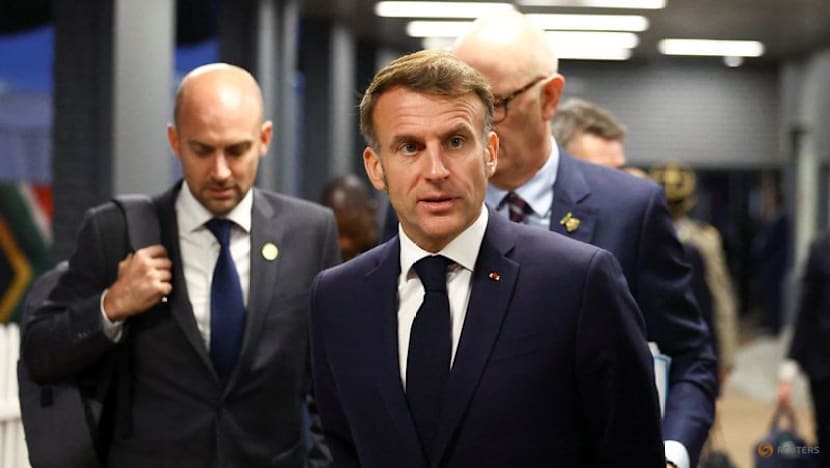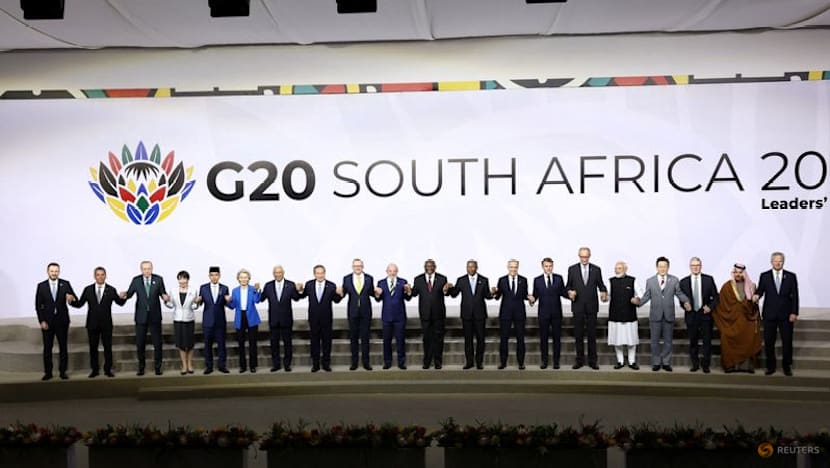South Africa G20 declaration highlights: minerals, debt, climate

JOHANNESBURG: Leaders from the G20 group of major economies on Saturday (Nov 22) endorsed a summit declaration in South Africa highlighting access to critical minerals, efforts to curb inequality and measures to cope with climate change.
South Africa, the first African nation to host a G20 summit, set “Solidarity, Equality, Sustainability” as the theme for its presidency of the bloc, which includes 19 countries plus the European Union and African Union and accounts for 85 per cent of global GDP.
The summit was boycotted by the United States.
CRITICAL MINERALS, VALUE CHAINS UNDER SCRUTINY
Leaders said they would work to protect global critical mineral supply chains from “disruption”, including from geopolitical tensions, unilateral trade actions that violate World Trade Organization rules, pandemics or natural disasters.
Demand for minerals used in renewable energy technologies, such as those in solar panels, electronics and electric vehicles has surged. Many of these resources are concentrated in Africa, where governments are seeking more value-added production rather than exporting raw materials alone.
The declaration also backed “increased exploration of critical minerals, particularly in developing countries”, and noted concerns over China’s dominance in global supply chains.

CALLS FOR JUST PEACE, REDUCED INEQUALITY
The text urged a “just, comprehensive, and lasting peace” in major global conflict zones, including Ukraine, Sudan, the Democratic Republic of Congo and the “Occupied Palestinian Territory”, in line with the UN Charter.
It urged nations to refrain from the threat or use of force against the sovereignty or territorial integrity of any state.
Ukraine was mentioned only once in the 30-page document, even as Western leaders at the summit focused heavily on responding to a unilateral peace plan pushed by US President Donald Trump that they say favours Russia.
South Africa placed inequality at the centre of its G20 presidency. The declaration underscored the “imperative” of addressing wealth disparities within and between countries, though it avoided direct endorsement of an expert report commissioned by President Cyril Ramaphosa.
Leaders called for reform of international financial systems to help low-income countries burdened by debt that is constraining development and essential public investment.
They urged greater transparency from lenders, including private creditors, and backed a review of the International Monetary Fund and efforts to establish global minimum taxes. Language on taxing the super-rich was noticeably weaker than in last year’s G20 declaration from Rio de Janeiro.
CLIMATE FINANCE AND ENERGY ACCESS
Coinciding with the conclusion of the COP30 climate talks in Brazil, the declaration recognised the need to “rapidly and substantially” scale up financing for climate action, from “billions to trillions globally” across public and private sources.
It highlighted persistent inequalities in energy access, particularly across Africa, and called for more diversified and de-risked investment in sustainable energy transitions.
The declaration also supported the development of early-warning systems to protect communities most vulnerable to climate-linked disasters, particularly in least-developed countries.
However, it did not include language calling for a phase-out of fossil fuels.















